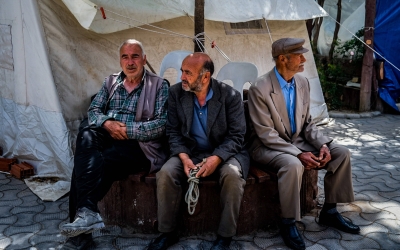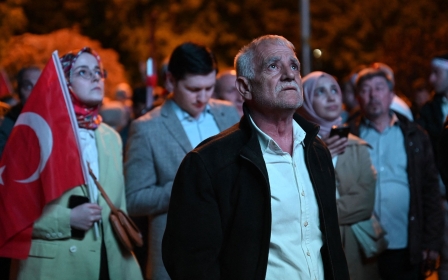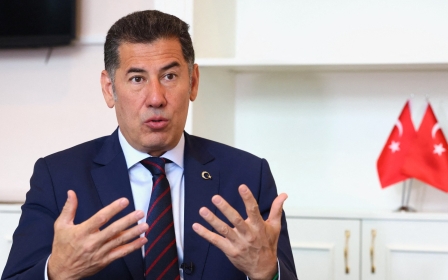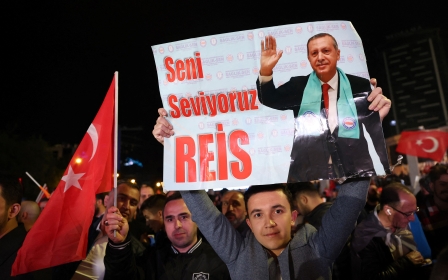Turkey elections: Earthquake victims blamed for opposition loss
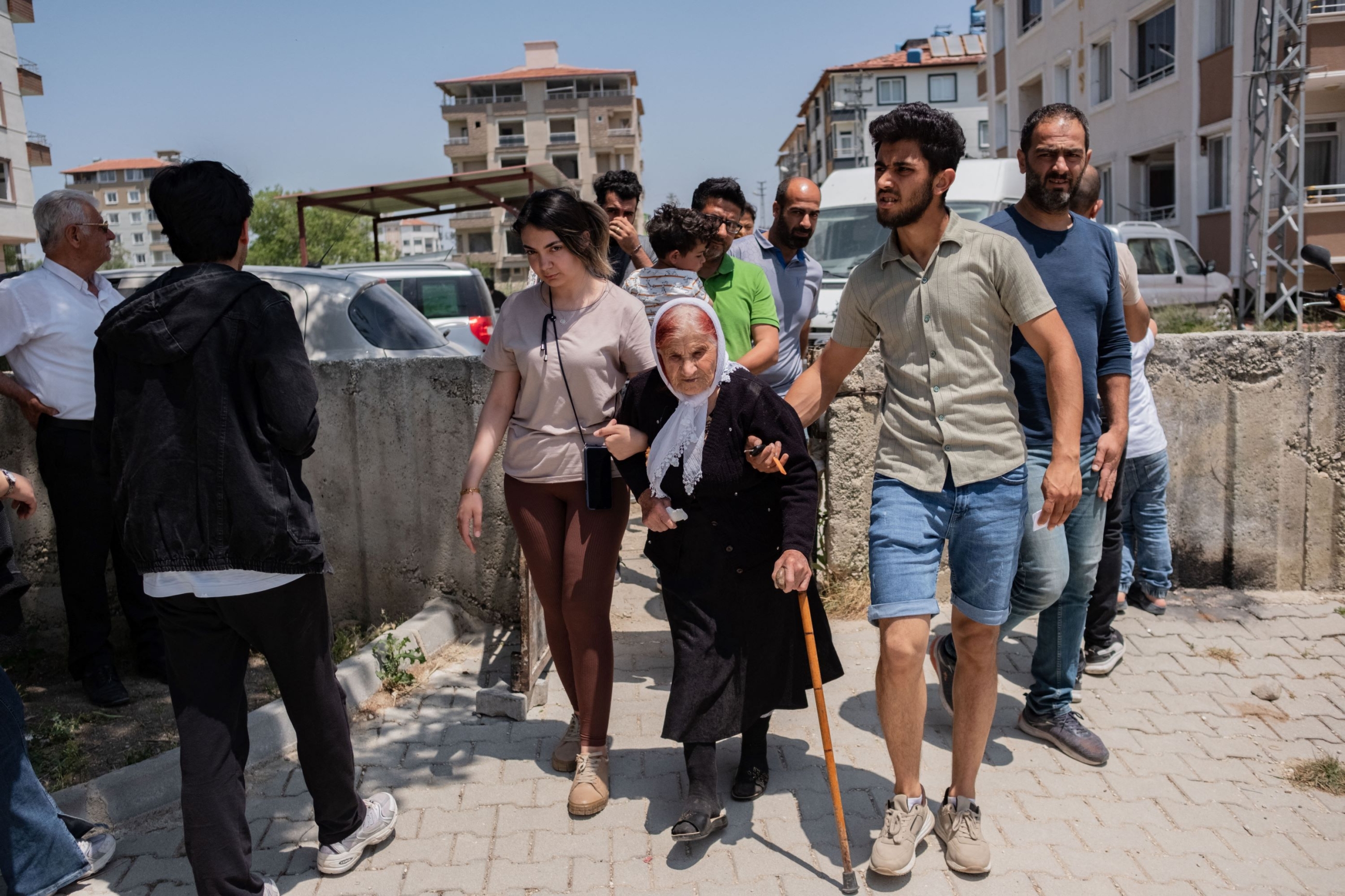
The term “depremzede”, meaning earthquake victim, became a trending topic on Turkish social media following the announcement of the election results, which saw the opposition underperforming compared to predictions in opinion polls.
Opposition supporters had anticipated a change in the voting preferences of the earthquake-affected region after widespread criticism of the government's handling of the disaster in February, which left over 50,000 dead and millions of people homeless.
This disappointment quickly transformed into anger.
A TikTok influencer said in a video that “we will not do anything for you as of now. First, we’ll ask who you voted for.”
She was arrested later with the accusation of insult.
New MEE newsletter: Jerusalem Dispatch
Sign up to get the latest insights and analysis on Israel-Palestine, alongside Turkey Unpacked and other MEE newsletters
In another video, a man was seen swearing to the quake-hit victims, asking how it was possible to vote for Turkey’s President Recep Tayyip Erdogan in the wake of the disaster.
On Eksi Sozluk, a popular discussion website, dozens of entries targeted earthquake victims on the grounds that their support for Erdogan was the reason for the devastation of their cities.
One of Ankara Mayor's Mansur Yavas’s tweets that showed his municipality continuing aid to quake-hit Kahramanmaras received thousands of replies, most of which were insulting against victims of the disaster.
In some social media posts, the quake victims responded to others, saying that those insults were motivating more people to vote for Erdogan in the runoff elections that are set to be held on 28 May.
Erdogan victory
This frustration mainly stemmed from Erdogan's resounding victory in all earthquake-affected cities, with the exception of Hatay, where Kilicdaroglu was only ahead by 368 votes.
In Adiyaman, a city that suffered significant devastation in the twin earthquakes, Erdogan received 66 percent of the votes, while Kilicdaroglu garnered around 31 percent. Additionally, Erdogan's Justice and Development Party (AKP) secured four parliamentary seats from Adiyaman, compared to the CHP's solitary seat.
Similarly, in Kahramanmaras, 71 percent of voters chose Erdogan, while Kilicdaroglu struggled to surpass 22 percent. The Erdogan-led People's Alliance obtained over 70 percent, whereas the Nation Alliance received approximately 23 percent.
The only exception was Hatay, where Kilicdaroglu narrowly secured 48.07 percent of the votes, while Erdogan obtained 48.03 percent. However, in the parliamentary elections, the People's Alliance held the lead with 48 percent, while the Nation Alliance remained at 36 percent.
In fact, Erdogan and his alliance achieved similar voting percentages to the 2018 presidential and parliamentary elections, with only slight drops.
For example, in Kahramanmaras, he experienced a three percent decrease from his previous 74 percent vote share in the presidential elections.
The turnout was expectedly lower than previous years, with some suggesting more than three million people had left their homes during the disaster.
Yet, it remains unknown how many of them re-registered themselves to vote in their new areas and how many went back to their cities to vote.
The turnout in the quake region was around 80 percent, while the turnout across the country was nearly 90 percent.
Indeed, these results were not surprising for observers. An MEE report from the quake region in early May indicated that a huge shift in voting behaviour was unlikely.
Middle East Eye delivers independent and unrivalled coverage and analysis of the Middle East, North Africa and beyond. To learn more about republishing this content and the associated fees, please fill out this form. More about MEE can be found here.


